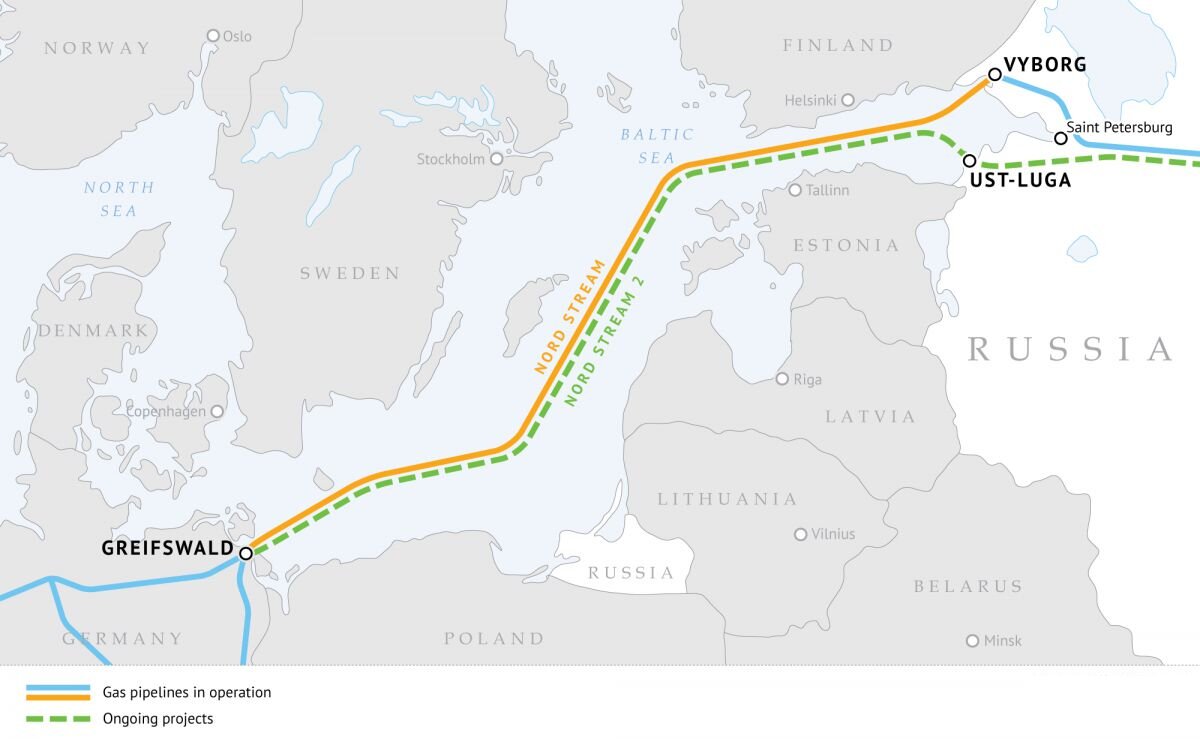International Relations
Tension Between Russia-Germany
- 07 Sep 2020
- 4 min read
Why in News
Recently, tensions between Russia and Germany have deepened over the alleged poisoning of Russian opposition figure Alexei Navalny.
- Germany has threatened sanctions against Russia which, in turn, has accused Germany of delaying the investigation on the matter.
Key Points
- Alexei Navalny is Russia’s opposition leader and anti-corruption campaigner who was evacuated to Germany after falling ill.
- Germany claims that the opposition leader has been poisoned using the Soviet-era nerve agent Novichok.
- It is one of the strongest accusations yet from Germany on the basis that the deadly substance has been used by the Russian authorities, in the past as well.
- Germany, which currently holds the rotating presidency of the European Union (EU), will discuss possible sanctions against Russia if it fails to provide an explanation.
- The EU can discuss sanctions on Nord Stream 2, which is a critical energy export project for the Russian government.
Novichok
- It means "newcomer" in Russian and applies to a group of advanced nerve agents developed by the Soviet Union in the 1970s and 1980s, under a programme codenamed Foliant.
- Nerve agents act by blocking messages from the nerves to the muscles, causing a collapse of many bodily functions.
- The main nerve agents are the chemicals sarin (GB), soman (GD), tabun (GA) and VX. Sarin was used by Syrian air force in chemical attacks on a village in Syria's western Hama region in 2017.
- Nerve agents are man-made and have been manufactured for use in chemical warfare.
- These nerve agents were designed to escape detection and are extremely toxic.
Nord Stream 2
- About:
- It is a nearly constructed 1,200-kilometre pipeline from Russia to Germany via the Baltic Sea.
- It will run alongside the already constructed Nord Stream and will double the amount of gas being funnelled through the Baltics to 110 billion cubic meters per year.
- Benefits:
- It is intended to provide Europe with a sustainable gas supply while providing Russia with more direct access to the European gas market.
- Its proposed route enters the territorial waters and Exclusive Economic Zone (EEZ) of three other countries: Finland, Sweden and Denmark. National governments and local authorities will benefit economically from investment and employment in the pipeline.
- Security Concerns and Criticism:
- The project has been criticized by the USA and Germany's Eastern neighbours like Poland, Czech Republic etc. citing Russian dependence as a threat to the common market and the EU’s strategic interests.
- The pipeline will enable Russia to increase its military presence in the Baltic Sea and also to transmit military information on the movements of naval vessels.
- The project has been criticized by the USA and Germany's Eastern neighbours like Poland, Czech Republic etc. citing Russian dependence as a threat to the common market and the EU’s strategic interests.





